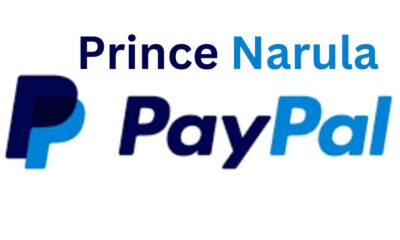TECHNOLOGY
The Ultimate Guide to Choosing the Best Visa Card for Your Needs

Are you on the hunt for the best Visa card that perfectly fits your needs? With so many options available, it can feel overwhelming to navigate through various features, rewards, and fees. However, finding the right card doesn’t have to be a daunting task. Whether you’re looking for cash back on everyday purchases or travel perks that elevate your adventures, this ultimate guide will help you make an informed choice. Get ready to unlock the secrets of Visa cards and discover how they can enhance your financial life!
Understanding the Different Types of Visa Cards
Visa cards come in several varieties, each tailored to different needs and lifestyles. The most common types are credit, debit, and prepaid cards.
Credit cards allow you to borrow money up to a certain limit for purchases. They often come with rewards programs that can earn you cash back or travel points.
Debit cards link directly to your bank account. This means you’re spending your own money without the risk of accumulating debt. They’re great for budget-conscious individuals who want better control over their finances.
Prepaid Visa cards function like gift cards; they require you to load funds before use. These are ideal for those who prefer not having a traditional bank account or want a safe option for online shopping.
Understanding these differences is crucial as it helps match the right kind of Visa card with your financial habits and goals.
Factors to Consider When Choosing a Visa Card
When selecting a Visa card, start by examining your spending habits. Are you a frequent traveler or someone who prefers shopping?
Next, look at the interest rates. A lower APR can save you money if you carry a balance. Additionally, consider any annual fees associated with the card; some may offer great perks that justify the cost.
Rewards programs are crucial too. Do they align with your lifestyle? Whether it’s cashback on groceries or travel points, choose one that maximizes your benefits.
Don’t overlook introductory offers. Many cards provide bonuses for meeting initial spending requirements—these can be quite attractive.
Check customer service ratings and online banking features. A user-friendly app and responsive support can enhance your experience significantly.
Benefits and Perks of Visa Credit Cards
Visa credit cards come packed with a variety of benefits that cater to diverse lifestyles. One standout feature is the robust rewards programs. Many cards offer points or cash back on purchases, making everyday spending more rewarding.
Travel enthusiasts will appreciate the travel benefits associated with many Visa options. From travel insurance to fraud protection and emergency assistance, these perks provide peace of mind when exploring new destinations.
Additionally, cardholders often gain access to exclusive experiences and discounts through partnerships with brands in retail and entertainment sectors.
Some Visa cards even support contactless payments for ease and speed during transactions. This can enhance your shopping experience significantly, especially at busy venues.
Moreover, consistent use of a Visa credit card can help build your credit score over time, paving the way for better financial opportunities down the line.
How to Apply for a Visa Card
Applying for a Visa card can seem daunting, but it doesn’t have to be. Start by researching different cards that suit your needs. Look for options with features like rewards programs or low interest rates.
Once you’ve narrowed down your choices, gather the necessary documents. Typically, you’ll need identification, proof of income, and possibly your credit score.
Visit the bank’s website or a local branch to fill out an application form. Many banks offer online applications for convenience. Make sure to double-check all information before submitting.
Be prepared for a credit check during this process; this helps lenders assess your financial responsibility. After submission, you may receive approval quickly or within a few days.
Keep an eye on your email or mailbox for updates regarding your application status. Patience is key as they finalize their decision based on various factors related to your financial profile.
Managing Your Visa Card: Tips and Tricks
Managing your Visa card effectively can lead to significant savings and a healthier credit score. Start by setting up automatic payments for your bills. This ensures you never miss a due date, avoiding late fees and interest charges.
Use budgeting apps to track your spending. These tools help you stay within your limits and keep an eye on where your money goes each month.
Consider taking advantage of rewards programs offered with many Visa cards. Points or cashback can add up quickly when used strategically.
Monitor your account regularly for any unauthorized transactions. Prompt reporting can save you from potential fraud-related headaches down the line. By staying proactive, you’re not just managing a card; you’re enhancing your financial wellness.
Alternatives to Visa Cards
When considering alternatives to Visa cards, several options stand out. One popular choice is Mastercard, which offers similar benefits and acceptance worldwide.
If you’re looking for more flexibility, American Express could be an excellent fit. It often comes with premium rewards programs tailored for frequent travelers or those who dine out regularly.
Discover is another contender worth exploring. Their cashback rewards can be enticing, especially if you prefer earning as you spend.
For those leaning towards prepaid options, consider using a prepaid debit card. These cards allow you to load funds upfront and control your spending without the risk of overspending on credit.
Digital wallets like PayPal or Apple Pay provide convenience and security while making online transactions easier than ever. Each alternative has unique features that may cater better to your specific needs.
Conclusion
Choosing the best Visa card for your needs involves more than just selecting a shiny new piece of plastic. It requires understanding the various types available, considering important factors like fees and rewards, and knowing how to manage it effectively once you have one.
Understanding your spending habits can guide you toward features that will benefit you most. Whether you’re looking for cashback options or travel rewards, there’s likely a Visa card tailored to fit those desires.
Applying is straightforward—most applications can be completed online in minutes. Just ensure that you’ve reviewed all terms and conditions beforehand.
Managing your card wisely will help maintain a healthy credit score while maximizing any benefits offered through your chosen card. Keep an eye on interest rates, set alerts for due dates, and consider utilizing auto-pay features if they suit your lifestyle.
If a Visa card doesn’t seem right for you after weighing these considerations, don’t hesitate to explore alternatives like Mastercard or American Express; sometimes another option might better align with what you’re looking for.
The journey toward finding the best Visa card is personal but rewarding when done thoughtfully, ensuring that it complements rather than complicates your financial life.
TECHNOLOGY
Exploring the Aesthetic: Isabelle Lynn Kertzie’s Instagram Journey

Isabelle Lynn Kertzie has taken Instagram by storm, drawing in an audience captivated by her unique aesthetic. With a keen eye for detail and an innate sense of style, she transforms everyday moments into visual poetry. As you scroll through her feed, it’s clear that each post is more than just a snapshot; it’s a carefully curated piece of art that resonates with thousands. But how did this ordinary social media experience evolve into the stunning journey we see today? Let’s delve deeper into Isabelle’s Instagram adventure and uncover what makes it so special.
From ordinary posts to curated aesthetic: Kertzie’s evolution on Instagram
Isabelle Lynn Kertzie’s Instagram journey tells a captivating story of transformation. Initially, her posts reflected everyday moments—snapshots of life that resonated with many.
As she explored her creative side, those ordinary images began to shift. Each post became more intentional, weaving together themes and colors that spoke to her unique style. Kertzie embraced visual storytelling, moving away from random uploads.
Her feed blossomed into a curated aesthetic that caught the eye of followers everywhere. Every photo seemed purposeful and thought-provoking—a reflection of not just what she saw but how she felt.
This evolution didn’t happen overnight; it was a gradual process filled with experimentation and self-discovery. With each new post, Isabelle showcased not only artistry but also an evolving identity within the vast landscape of social media culture.
The impact of Kertzie’s aesthetic on her followers and the social media community
Isabelle Lynn Kertzie’s Instagram aesthetic has become a vibrant source of inspiration for many. Her carefully curated visuals resonate deeply with followers, creating a sense of connection and community.
Each post invites her audience into a world filled with color, texture, and emotion. This artistic approach encourages others to explore their own creativity. Followers often find motivation in the way she presents everyday moments through an imaginative lens.
Kertzie’s aesthetic also fosters engagement within the social media landscape. People flock to her posts not just for visual pleasure but also for shared experiences and ideas. The comments section buzzes with conversation, as fans exchange thoughts on their favorite elements or styles inspired by her work.
In this era of constant scrolling, Isabelle’s feed stands out as a reminder that beauty can be found in both simplicity and complexity alike.
Behind the scenes: How Kertzie creates and maintains her aesthetic
Isabelle Lynn Kertzie’s aesthetic is not just a happy accident; it’s the result of careful planning and creativity. She dedicates time to curating her feed, selecting colors and themes that resonate with her personal style.
Kertzie often finds inspiration in everyday life—nature, fashion trends, or even art. Each photo captures a moment that speaks to her vision. She pays attention to lighting and composition, ensuring each post looks polished yet authentic.
Editing plays a significant role too. Kertzie utilizes various apps to enhance her images while keeping them true to her brand identity. Consistency is key; she sticks to specific filters that unify her visuals.
Her followers appreciate the effort behind every post, which fosters deeper connections. This engagement inspires Kertzie further as she continues refining her unique aesthetic journey on Instagram.
The challenges of maintaining an aesthetic and staying true to oneself
Maintaining a distinct aesthetic on Instagram can be both rewarding and challenging. For many, the pressure to keep up with trends can overshadow personal creativity.
Isabelle Lynn Kertzie navigates this delicate balance daily. While she curates stunning visuals, there’s always that nagging worry about authenticity. Followers expect consistency, yet each post is a reflection of her evolving self.
The struggle often lies in wanting to please an audience while staying true to individual expression. Authentic moments might clash with the polished vibe that garnered attention in the first place.
Moreover, inspiration can ebb and flow unexpectedly. What once felt vibrant may begin to feel stale or forced over time.
It’s easy to lose sight of why one started sharing content originally amidst external expectations and pressures from the social media landscape. The heart of it all remains: balancing artistic vision with genuine self-expression takes constant effort and introspection.
Lessons learned from Kertzie’s Instagram journey
Isabelle Lynn Kertzie’s Instagram journey offers valuable insights into the world of social media. One key lesson is the importance of authenticity. Followers connect more deeply when they sense genuine passion behind content.
Additionally, consistency plays a crucial role in building an engaged community. Regularly posting cohesive visuals and themes keeps followers coming back for more. This effort fosters loyalty over time.
Embracing creativity is another takeaway from her experience. Kertzie showcases that experimentation can lead to unexpected successes, encouraging others to break free from conventional norms.
Balancing personal expression with audience expectations is vital. While it’s tempting to cater solely to trends or likes, staying true to oneself ultimately resonates most powerfully with followers.
Conclusion: The power of aesthetics in
The journey of Isabelle Lynn Kertzie on Instagram is a testament to the transformative power of aesthetics. Her evolution from ordinary posts to a carefully curated aesthetic has captured the attention of many. It’s more than just visuals; it’s about storytelling and connection.
Kertzie’s impact resonates deeply within her community, inspiring followers to embrace their own creative journeys while fostering a sense of belonging. Behind her stunning feed lies dedication, planning, and an unwavering commitment to authenticity.
Maintaining such an aesthetic brings its unique challenges. Yet, Kertzie navigates these hurdles with grace, reminding us that staying true to oneself is paramount in the ever-changing landscape of social media.
Her story offers valuable lessons for anyone looking to enhance their online presence. Aesthetic isn’t merely surface-level; it’s about expressing identity and connecting with others who share similar passions.
Isabelle Lynn Kertzie’s Instagram serves as a powerful reminder: aesthetics have the ability not only to beautify our feeds but also to enrich our lives through shared experiences and creativity.
TECHNOLOGY
What Is Atlas Physical Therapy and Why Is It Trending?

Atlas Physical Therapy has steadily become a standout in the healthcare sector due to its commitment to personalized, evidence-based care. Rooted in holistic healing and functional movement science, Atlas offers a distinct and refreshing approach to recovery and rehabilitation. Whether you’re recovering from surgery, managing chronic pain, or aiming for peak athletic performance, Atlas has gained popularity for doing more than just “fixing injuries”—they’re transforming lives.
The growing attention to physical therapy as a preventative and restorative care option places Atlas at the center of a societal shift toward non-invasive, empowering, and sustainable health practices. From athletes to seniors and children, the results speak volumes—and so do the patients.
The Vision and Philosophy Behind Atlas Physical Therapy
The founding philosophy of Atlas Physical Therapy is simple but powerful: “Movement is medicine.” Built on the understanding that every individual’s journey is unique, Atlas emphasizes human connection, scientific precision, and emotional support.
Rather than taking a one-size-fits-all approach, the therapists at Atlas tailor each session, adjusting techniques based on progress, pain levels, and personal goals. Their core values—empathy, innovation, transparency, and trust—are deeply woven into their practice, ensuring that patients don’t just feel treated, but truly cared for.
Comprehensive Services Offered at Atlas Physical Therapy
Atlas Physical Therapy offers a wide array of services that address different needs, including:
-
Orthopedic physical therapy
-
Neurological rehabilitation
-
Sports injury recovery
-
Pediatric physical therapy
-
Geriatric mobility therapy
-
Post-surgical rehabilitation
-
Dry needling and cupping
-
Manual therapy
-
Functional movement screening
-
Telehealth and home exercise programs
These services are designed to cater to short-term goals (like healing an injury) and long-term wellness strategies (like posture correction and chronic pain management).
Evidence-Based Therapies Practiced at Atlas
Evidence drives every decision at Atlas. The team incorporates the latest peer-reviewed research into therapy plans. Modalities include:
-
Therapeutic ultrasound
-
Neuromuscular electrical stimulation (NMES)
-
Joint mobilization and manipulation
-
Functional dry needling
-
Kinesiology taping
-
Corrective exercise programming
Therapists stay updated through continuous professional development, ensuring best-in-class treatment at every visit.
Atlas Physical Therapy’s Unique Areas of Specialization
Atlas doesn’t just offer general physical therapy—they go deep into specialties that require advanced skill sets, such as:
-
Vestibular therapy for balance and dizziness disorders
-
Temporomandibular joint (TMJ) dysfunction treatment
-
Concussion recovery programs
-
Women’s health physical therapy (e.g., pelvic floor therapy)
-
Post-stroke mobility training
These specialized programs differentiate Atlas from clinics that merely address surface-level symptoms.
What Conditions Does Atlas Physical Therapy Treat?
Atlas Physical Therapy treats a wide range of conditions, such as:
-
Lower back pain and sciatica
-
Neck and shoulder discomfort
-
Knee injuries and arthritis
-
Post-surgical complications
-
Carpal tunnel syndrome
-
Tendinitis and bursitis
-
Scoliosis
-
Plantar fasciitis
-
Balance and coordination issues
By targeting root causes—not just symptoms—Atlas helps patients regain control and confidence in their bodies.
Conclusion: Is Atlas Physical Therapy the Right Choice for You?
If you’re looking for a partner in health who sees you as more than just a diagnosis, Atlas Physical Therapy may be your best decision. Their modern approach blends science, compassion, and customization to deliver real results. Whether you’re an athlete aiming for excellence, a parent seeking care for your child, or someone recovering from surgery—Atlas meets you exactly where you are.
Your body deserves a trusted guide. At Atlas Physical Therapy, you’re not just healing—you’re evolving.
TECHNOLOGY
Telemetryczny: Understanding Telemetry and Its Applications

Introduction
The term “telemetryczny” (Polish for “telemetric”) refers to systems and technologies that enable the remote measurement and transmission of data. Telemetry plays a crucial role in various industries, including healthcare, automotive, aerospace, and environmental monitoring. This article explores the concept of telemetry, its applications, benefits, and future trends.
What Is Telemetry?
Telemetry is the automated process of collecting data from remote or inaccessible sources and transmitting it to receiving equipment for monitoring and analysis. The word “telemetryczny” derives from Greek roots:
-
“Tele” (remote)
-
“Metron” (measure)
Modern telemetry systems use sensors, wireless communication, and data processing tools to provide real-time insights.
How Telemetry Works
A typical telemetry system consists of:
-
Sensors – Detect physical parameters (temperature, pressure, speed, etc.).
-
Transmitters – Send collected data via wired or wireless networks (Wi-Fi, Bluetooth, satellite).
-
Receivers – Capture and process incoming data.
-
Data Analysis Tools – Interpret and visualize data for decision-making.
Types of Telemetry Systems
| Type | Description | Applications |
|---|---|---|
| Wireless Telemetry | Uses radio, satellite, or cellular networks | IoT, wildlife tracking |
| Wired Telemetry | Relies on physical connections (Ethernet, fiber optics) | Industrial automation |
| Acoustic Telemetry | Uses sound waves underwater | Marine biology |
| Optical Telemetry | Transmits data via light signals | Medical devices, aerospace |
Applications of Telemetry (Telemetryczny)
1. Healthcare & Medical Telemetry
-
Remote Patient Monitoring (RPM) – Tracks vital signs (ECG, blood pressure) in real time.
-
Implantable Devices – Pacemakers and insulin pumps use telemetry for adjustments.
2. Automotive & Telematics
-
Vehicle Tracking – GPS telemetry helps in fleet management.
-
Connected Cars – Monitors engine performance and driver behavior.
3. Aerospace & Defense
-
Satellite Telemetry – Collects data from space missions.
-
Drone Monitoring – Ensures flight stability and navigation.
4. Environmental Monitoring
-
Weather Stations – Measures temperature, humidity, and wind speed.
-
Wildlife Tracking – Uses GPS collars to study animal migration.
5. Industrial & Manufacturing
-
Predictive Maintenance – Detects equipment failures before they occur.
-
Smart Grids – Monitors electricity distribution efficiently.
Benefits of Telemetry Systems
✅ Real-Time Data Access – Enables instant decision-making.
✅ Cost Efficiency – Reduces manual monitoring efforts.
✅ Enhanced Safety – Critical in healthcare and aerospace.
✅ Scalability – Adaptable for small IoT devices to large industrial systems.
Challenges in Telemetry
⚠ Data Security – Risk of cyberattacks on transmitted data.
⚠ Signal Interference – Wireless telemetry may face connectivity issues.
⚠ Power Consumption – Battery life is a concern for remote sensors.
Future Trends in Telemetry
🔮 5G Integration – Faster and more reliable data transmission.
🔮 AI & Machine Learning – Predictive analytics for smarter telemetry.
🔮 Edge Computing – Reduces latency by processing data closer to the source.
Conclusion
The term “telemetryczny” encompasses a wide range of technologies that revolutionize data collection and analysis. From healthcare to space exploration, telemetry enhances efficiency, safety, and innovation. As technology advances, telemetry systems will become even more integral to our connected world.
-

 BUSINESS1 month ago
BUSINESS1 month agoPrince Narula Digital PayPal Success: Transforming Online Payments
-

 ENTERTAINMENT1 month ago
ENTERTAINMENT1 month agoHighlights and Analysis: WWE SmackDown Episode 1491 Recap
-

 ENTERTAINMENT1 year ago
ENTERTAINMENT1 year agoWWE SmackDown Episode 1488 Delivers a Knockout Performance
-

 videos11 months ago
videos11 months agobad hair day episode 1 a sore subject
-

 LAW11 months ago
LAW11 months agoAn Intriguing Journey into the Life of Jeff Tietjens
-

 HOME1 year ago
HOME1 year agoMaximizing Basement Space: Design Tips from Top Basement Renovation Contractors
-

 CELEBRITY2 years ago
CELEBRITY2 years agoDiscovering Edgardo Canales The Life and Journey of Adria Arjona’s Husband
-

 News1 year ago
News1 year agoNews JotechGeeks Takes the Spotlight in Tech News World
